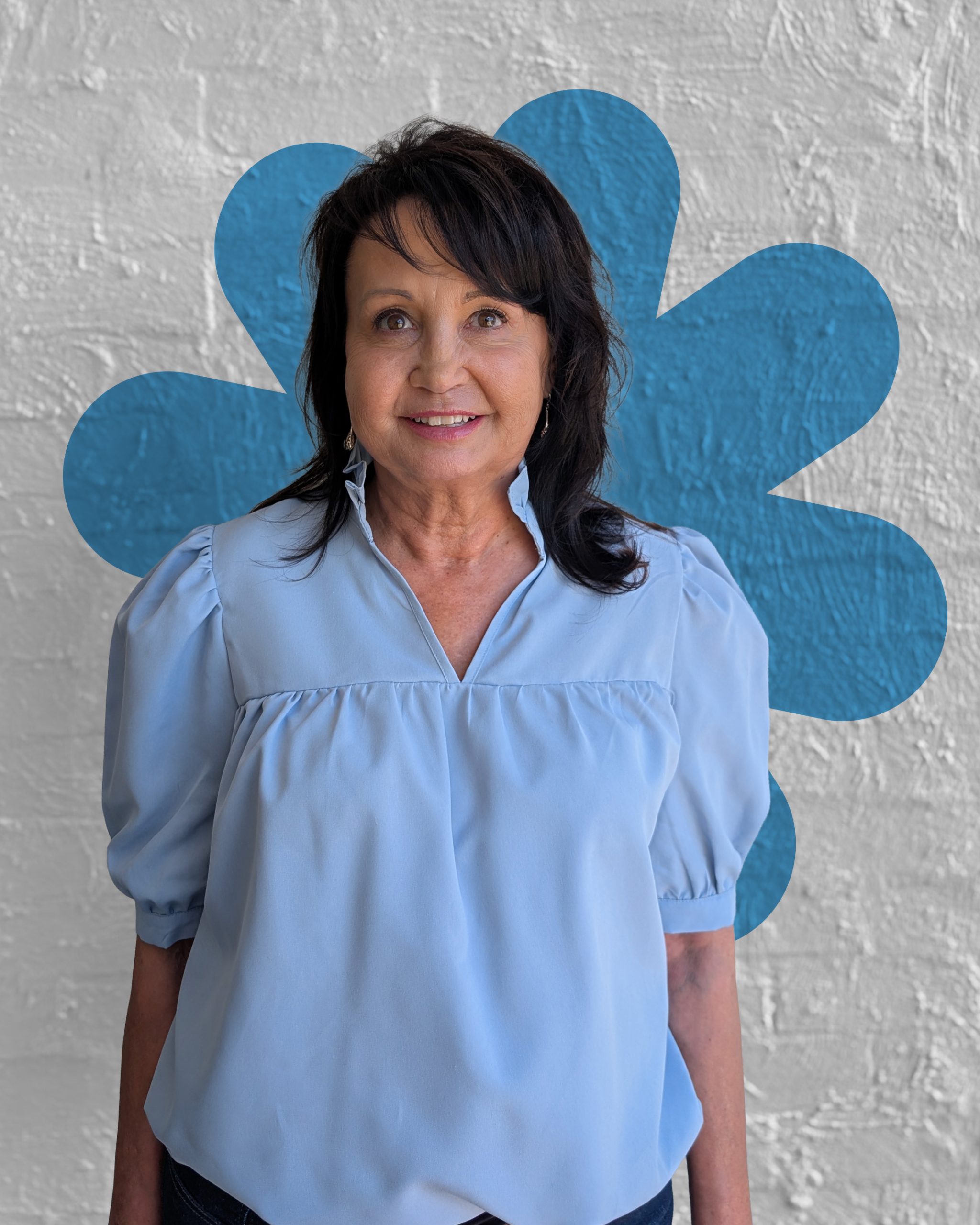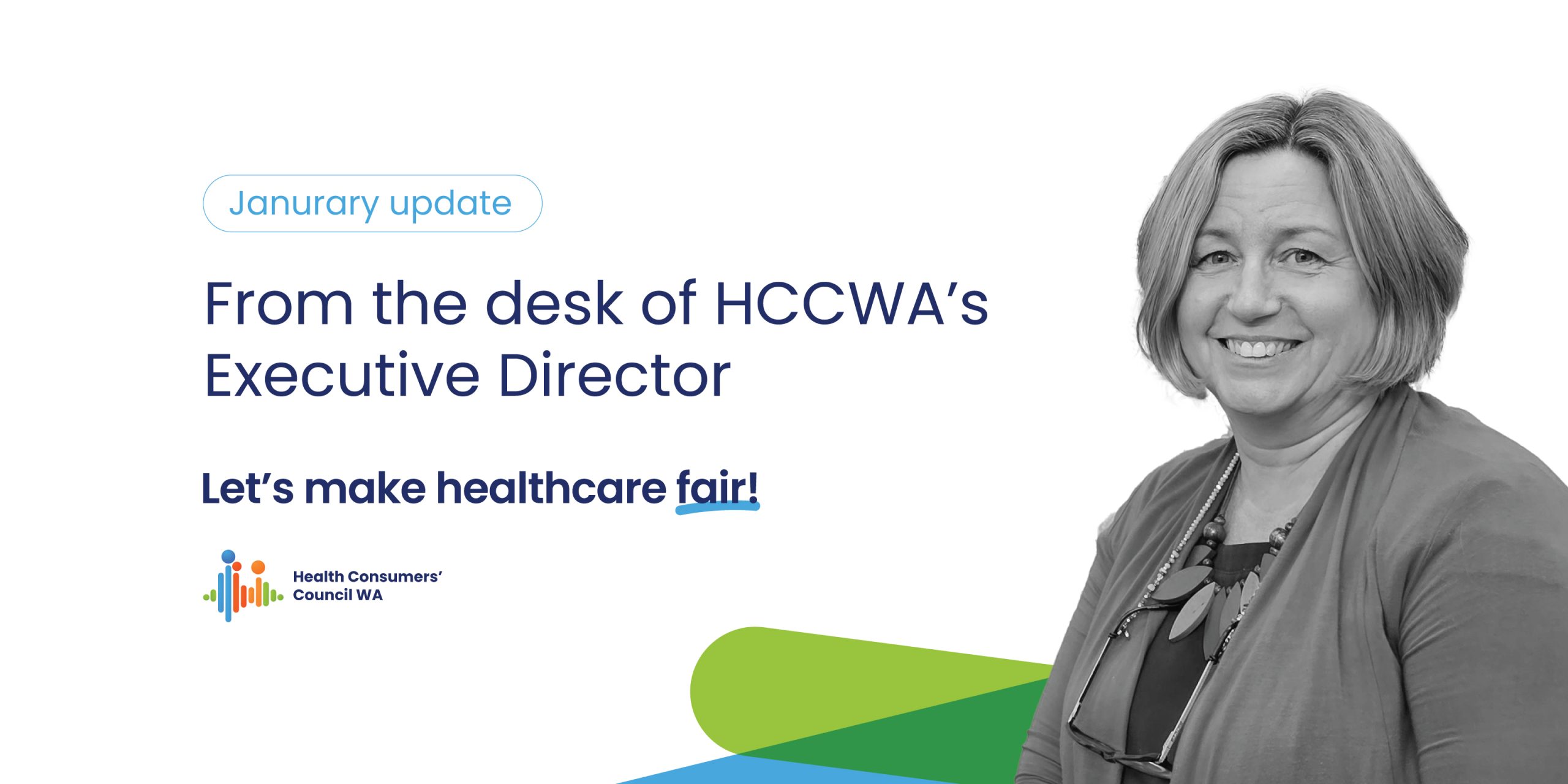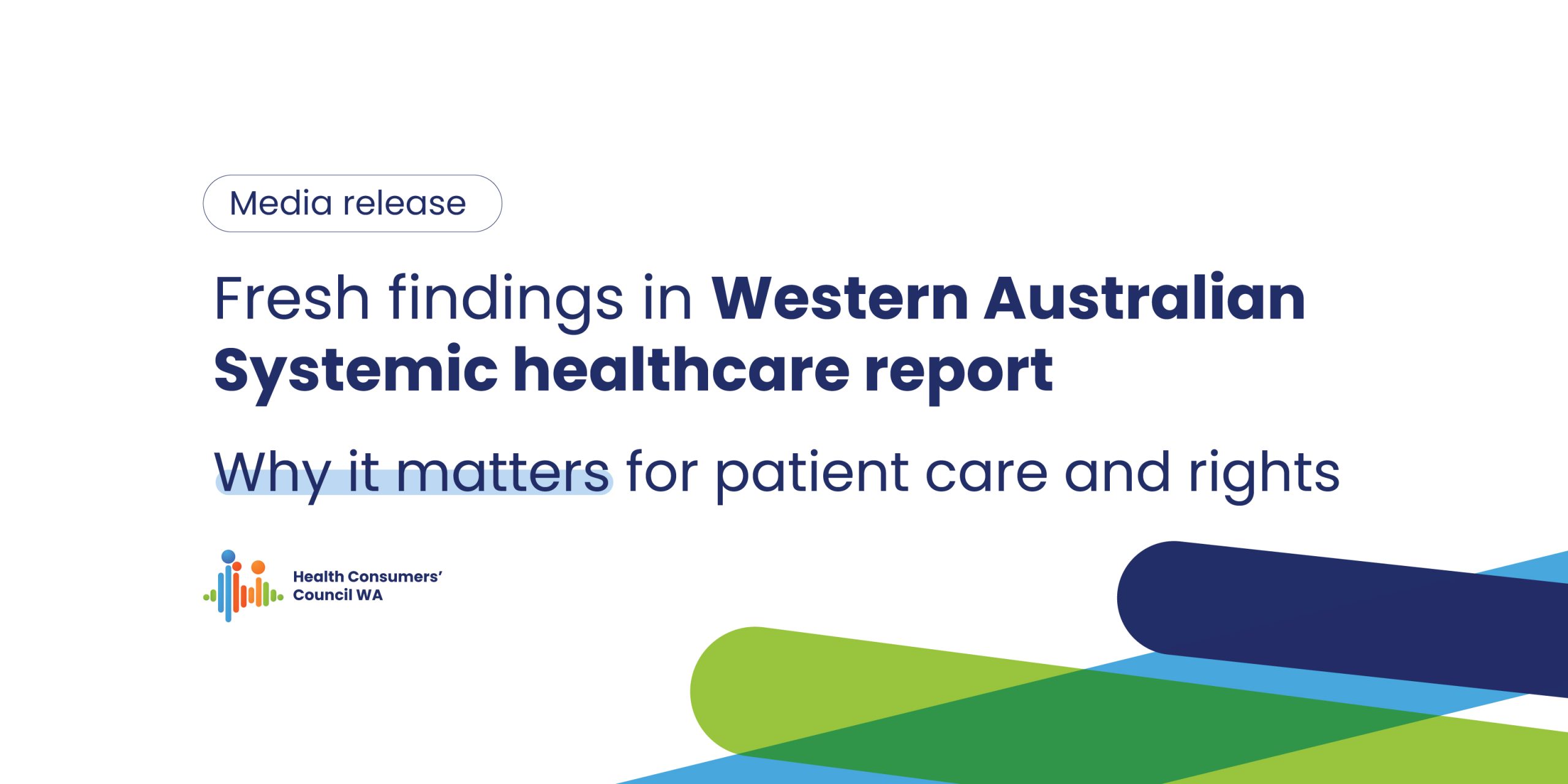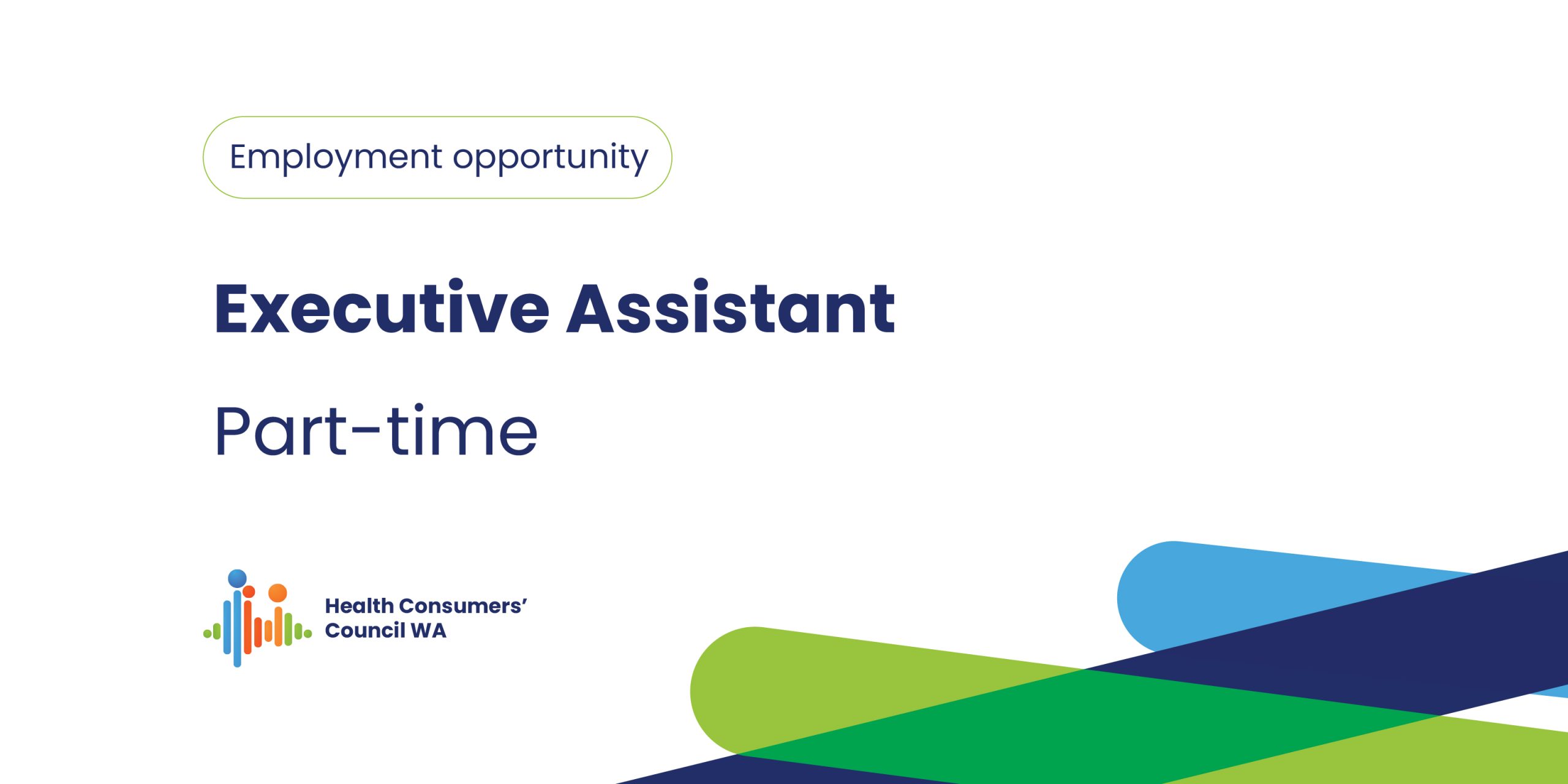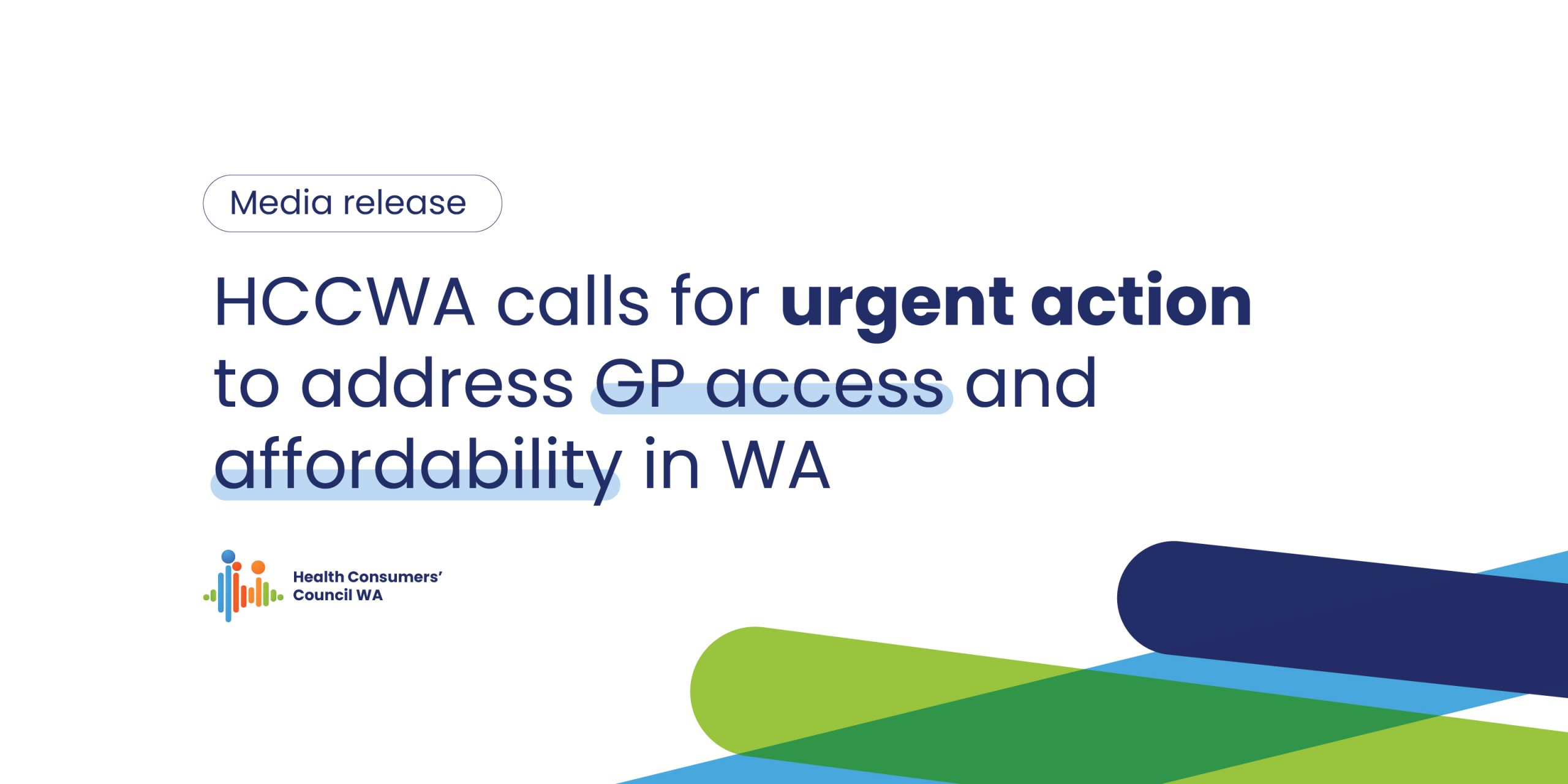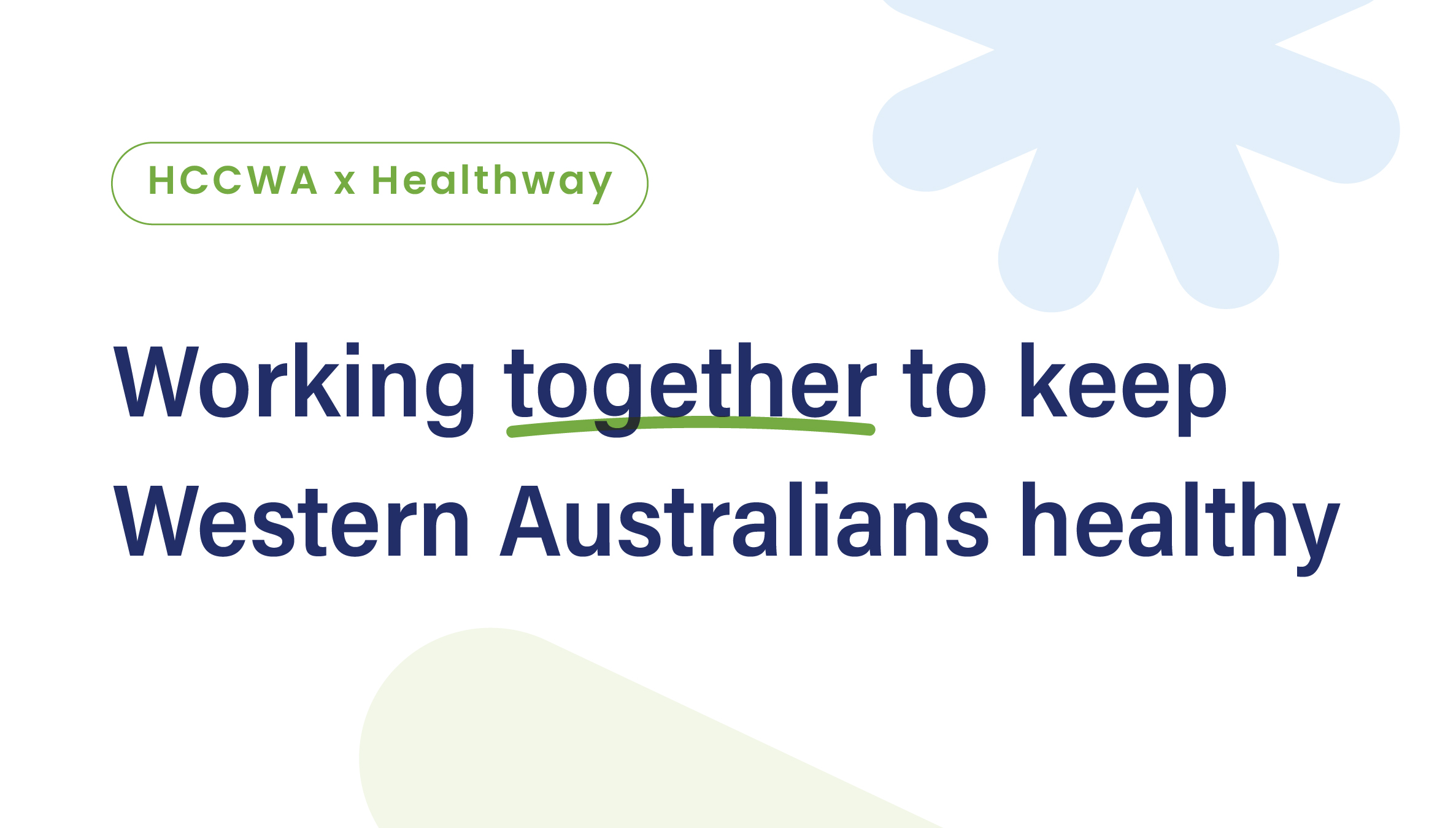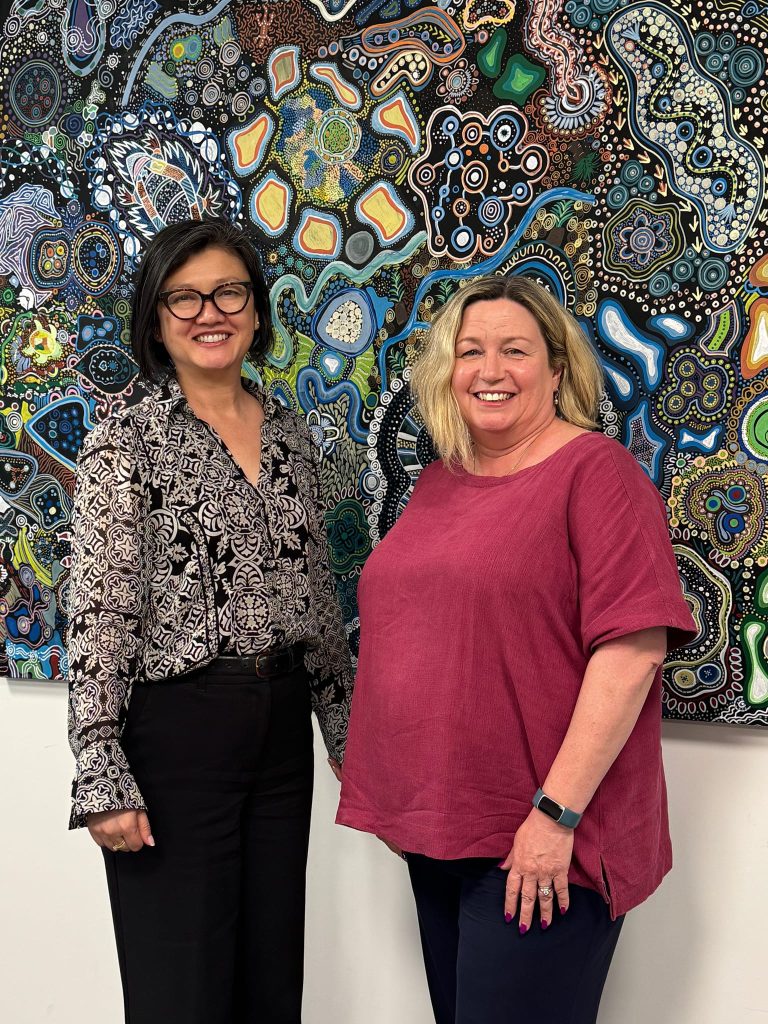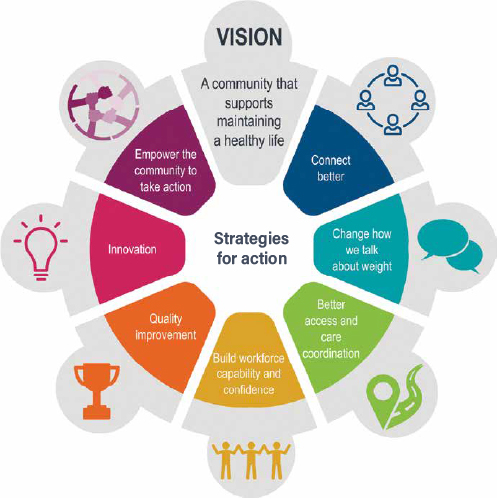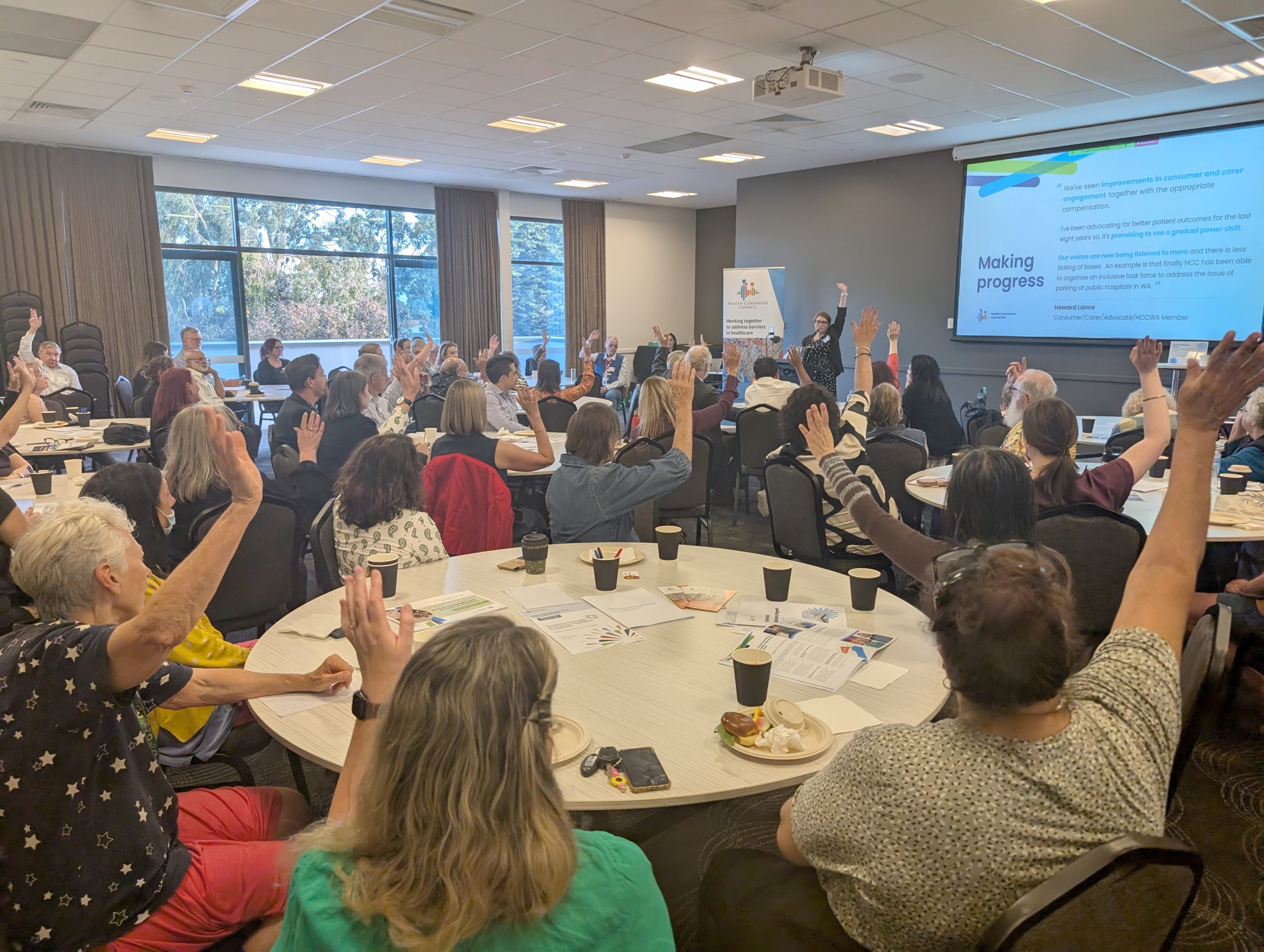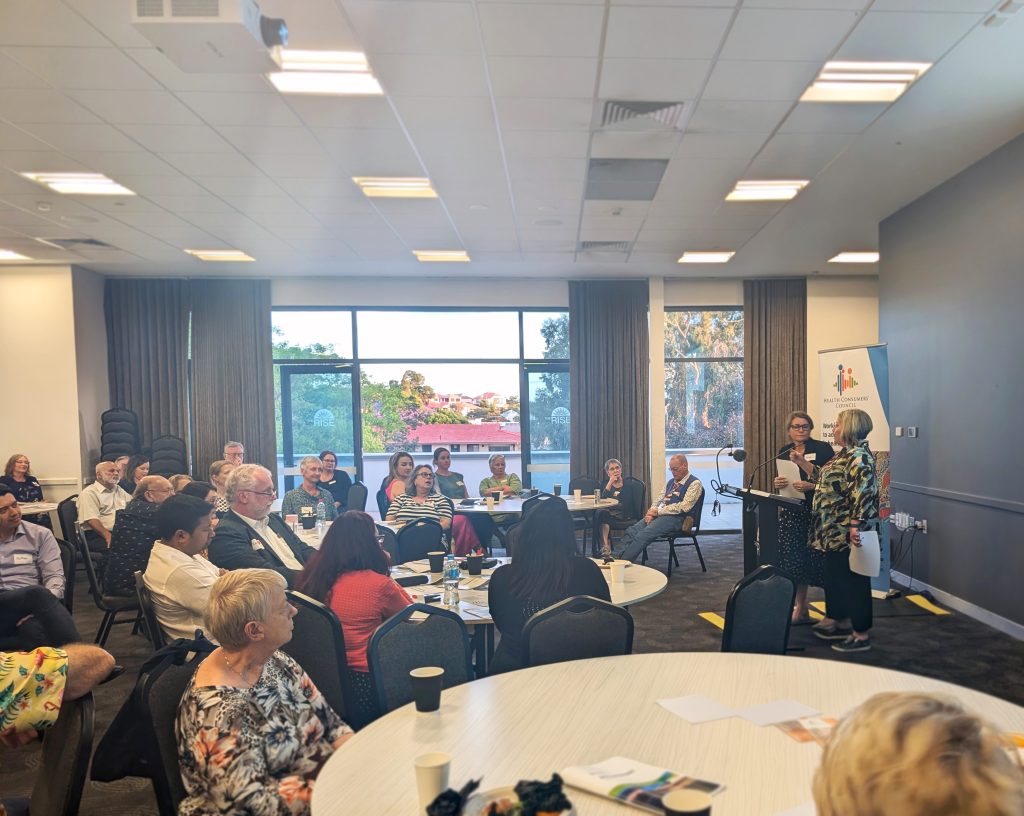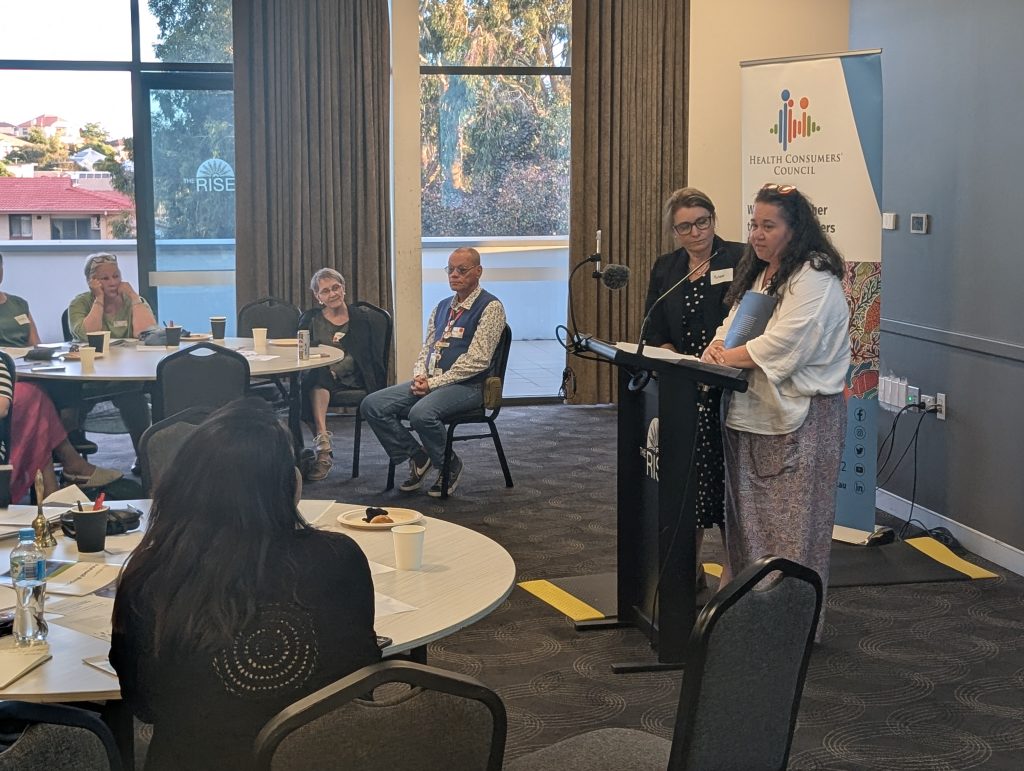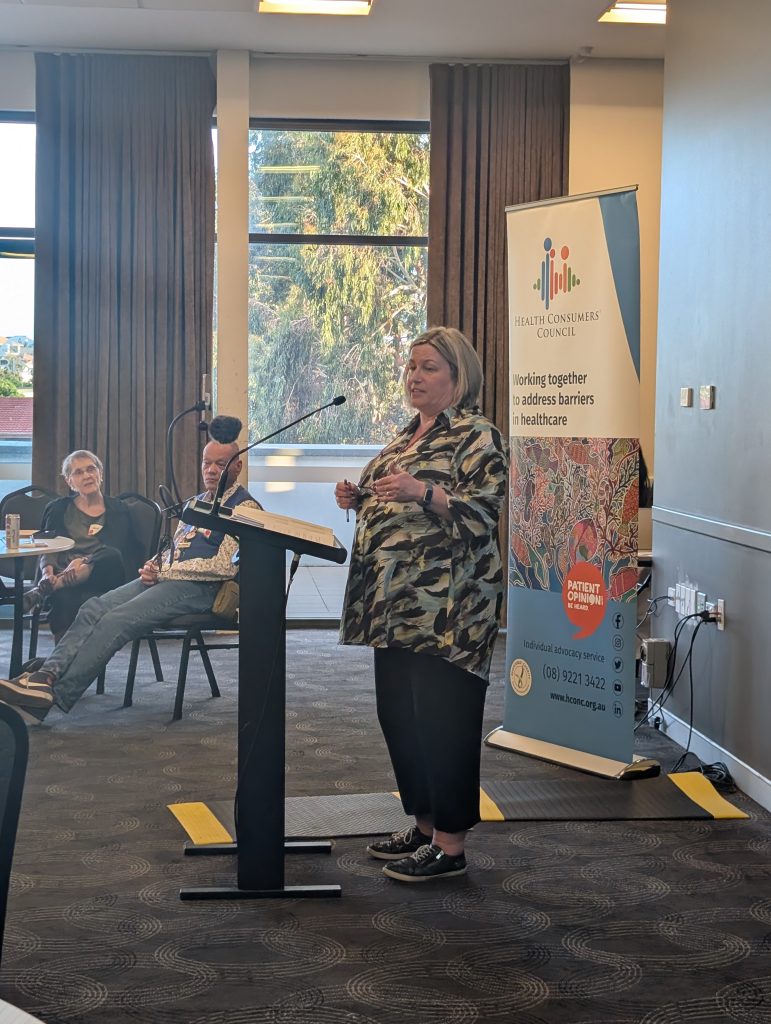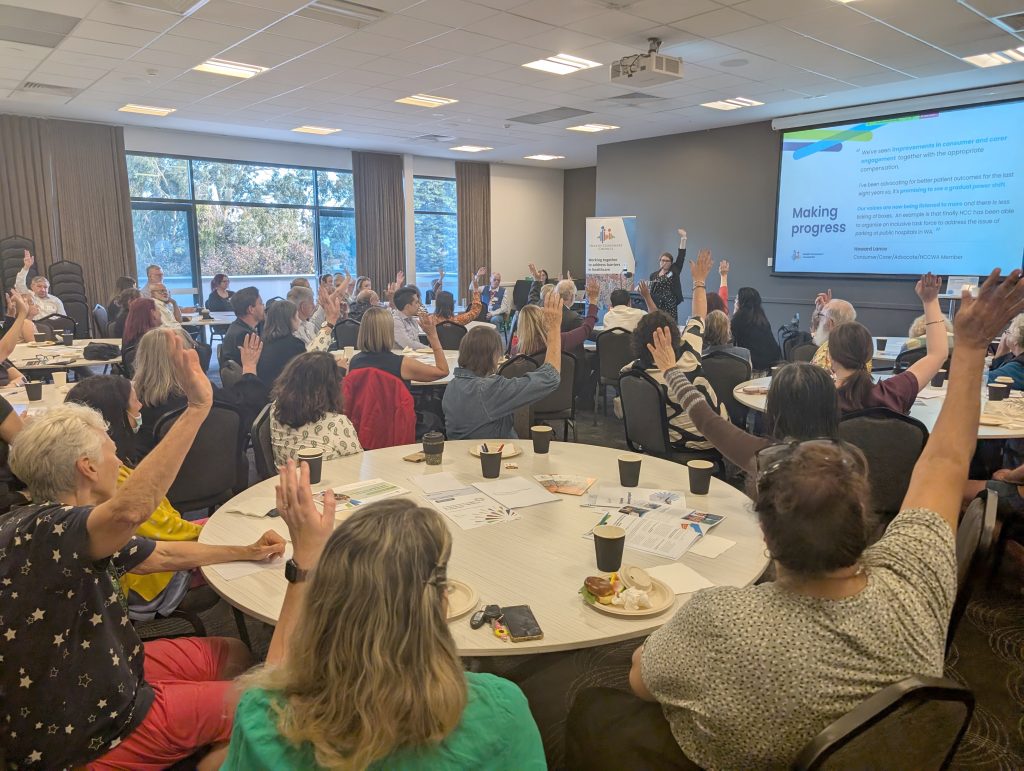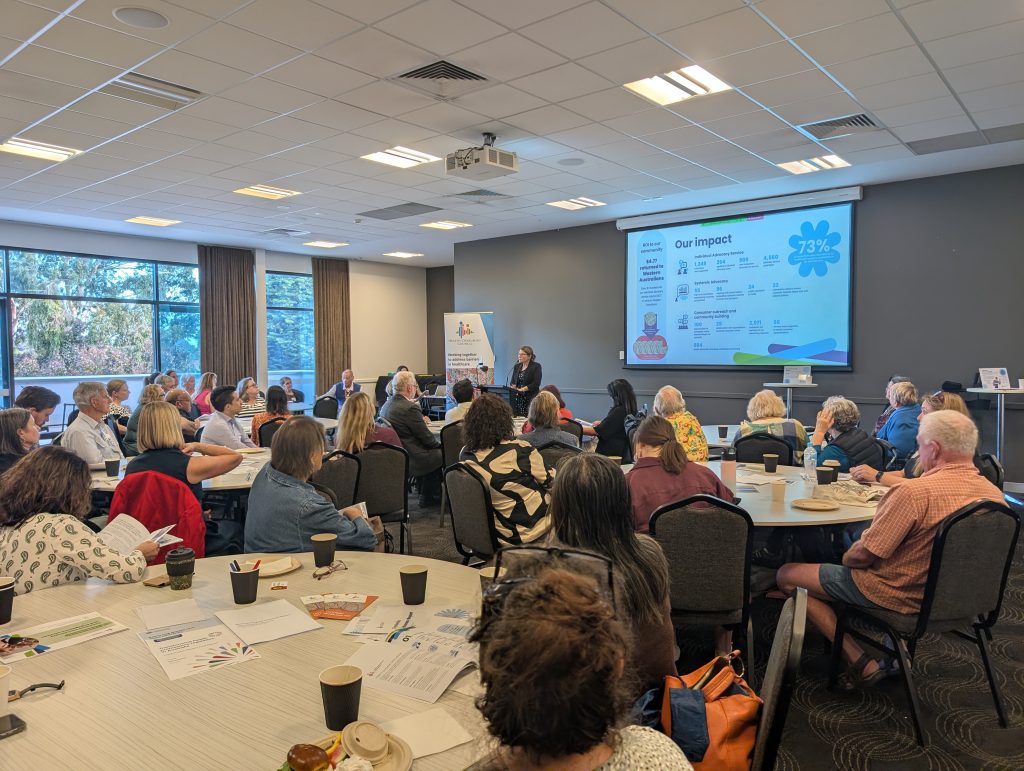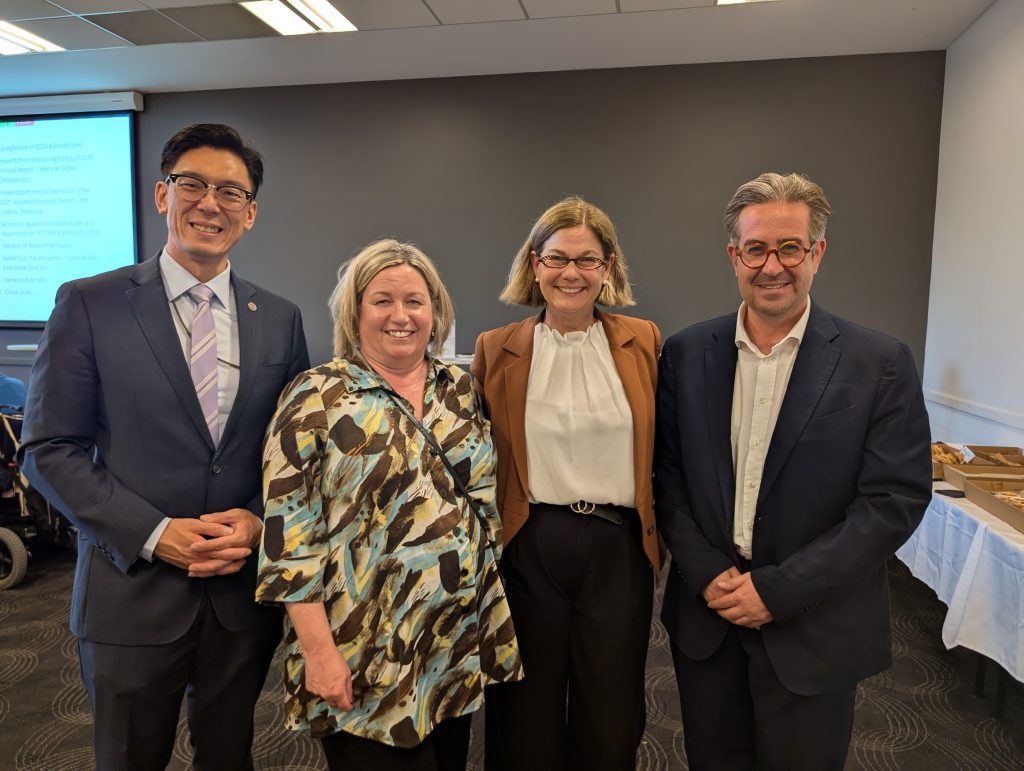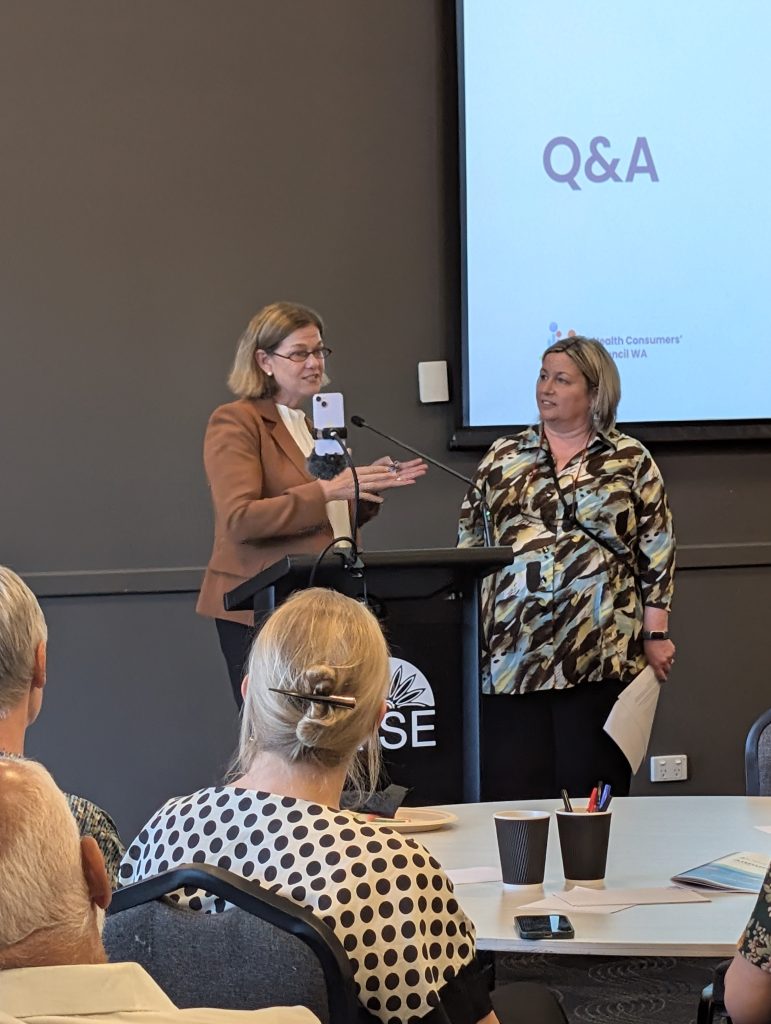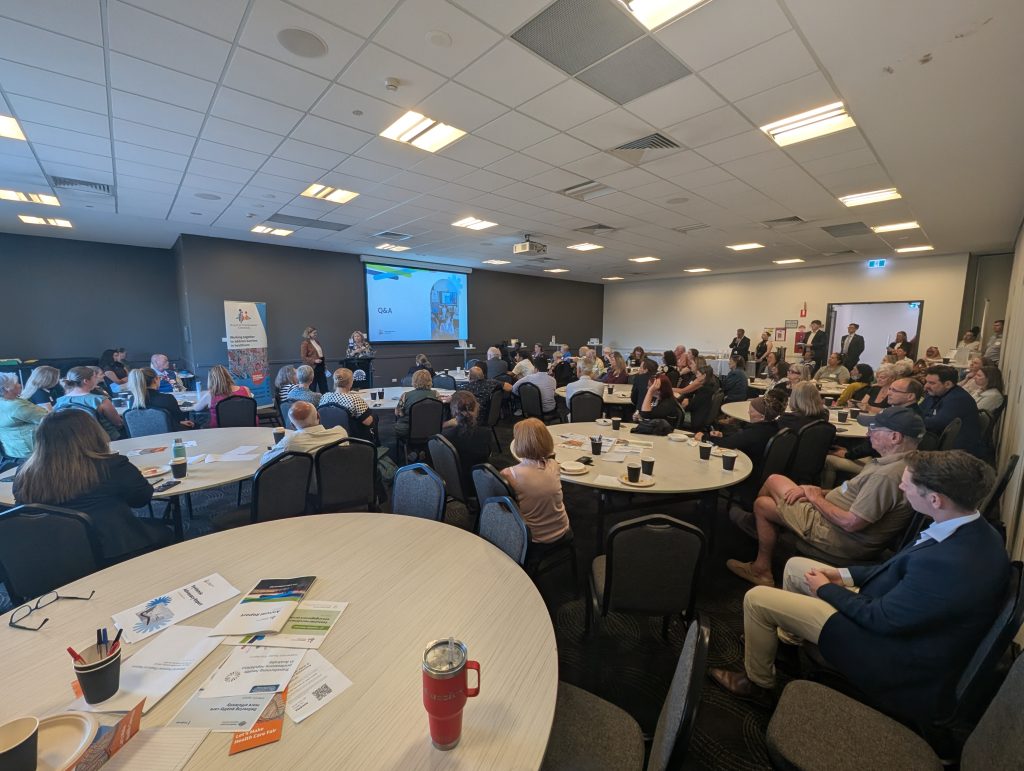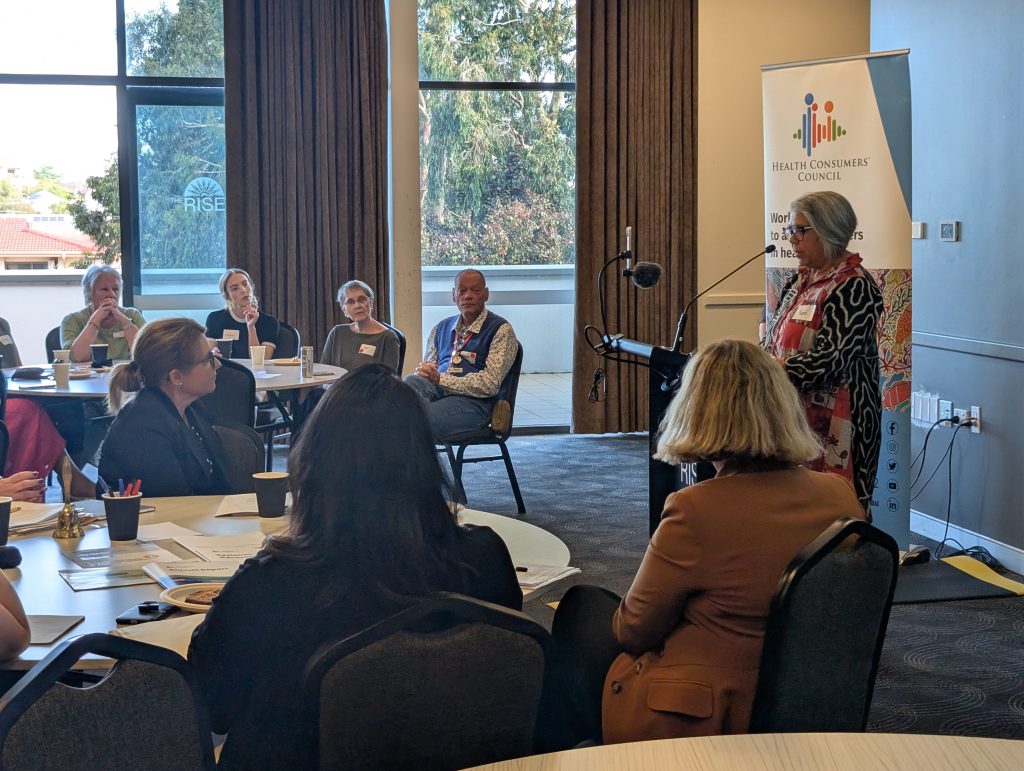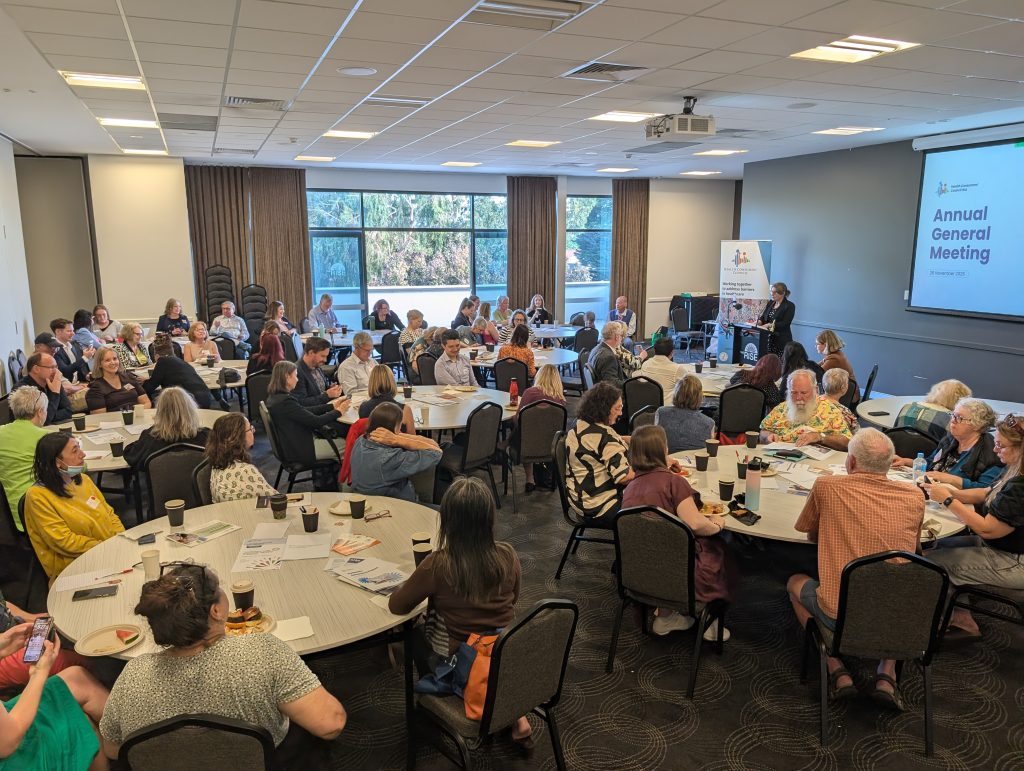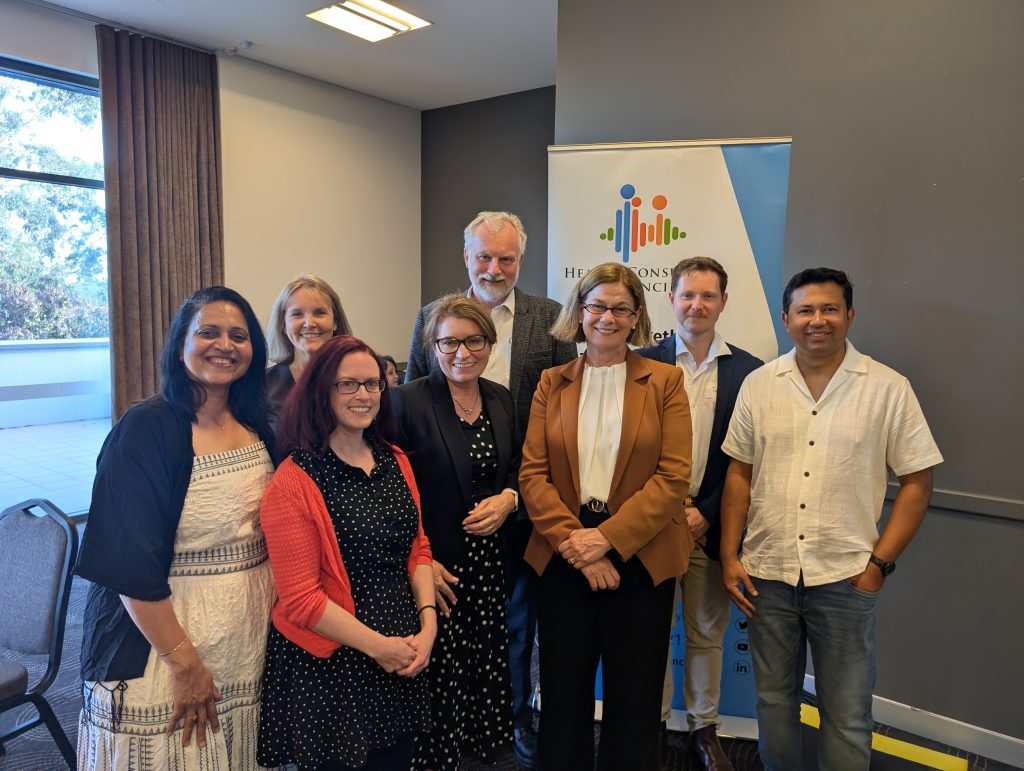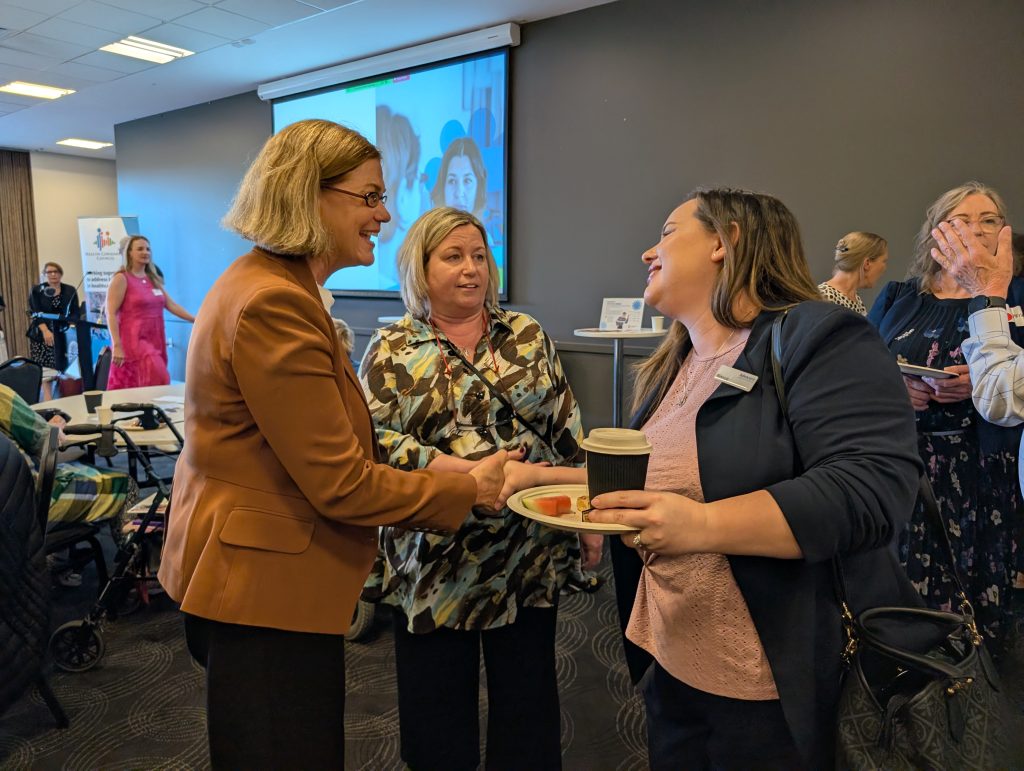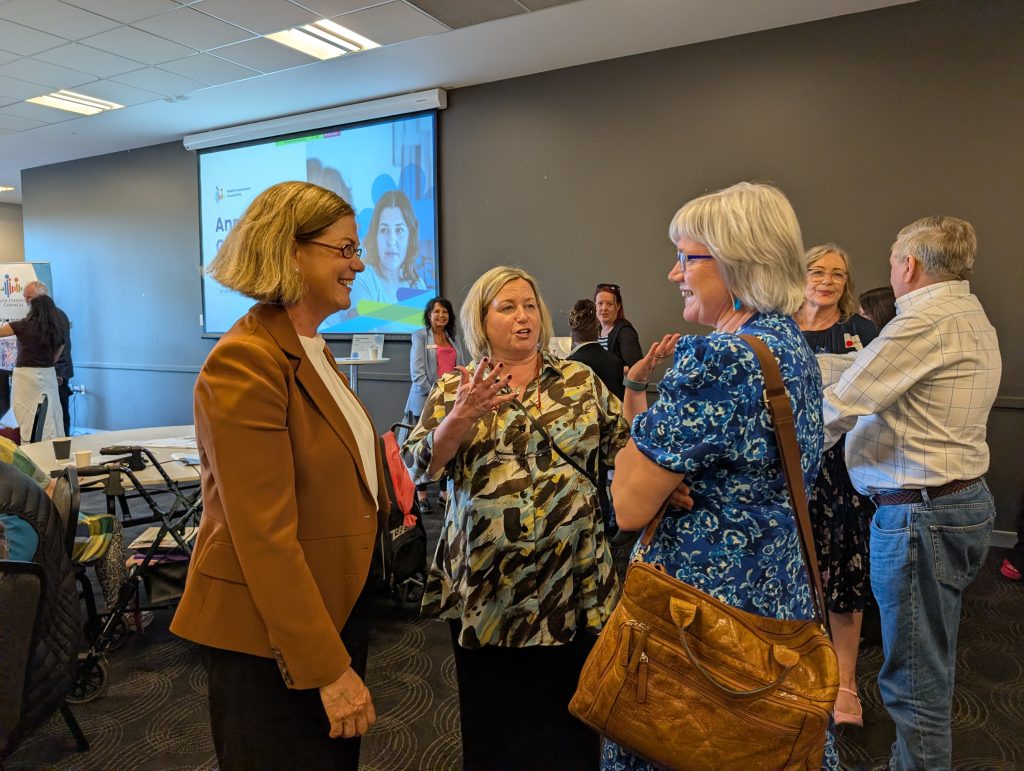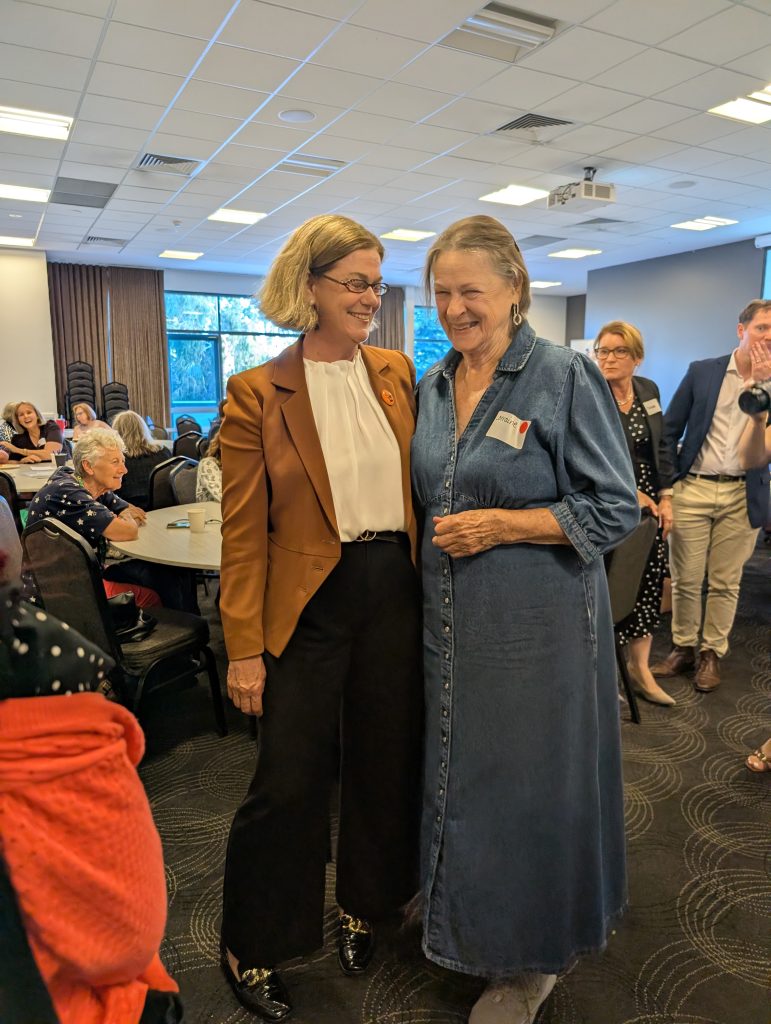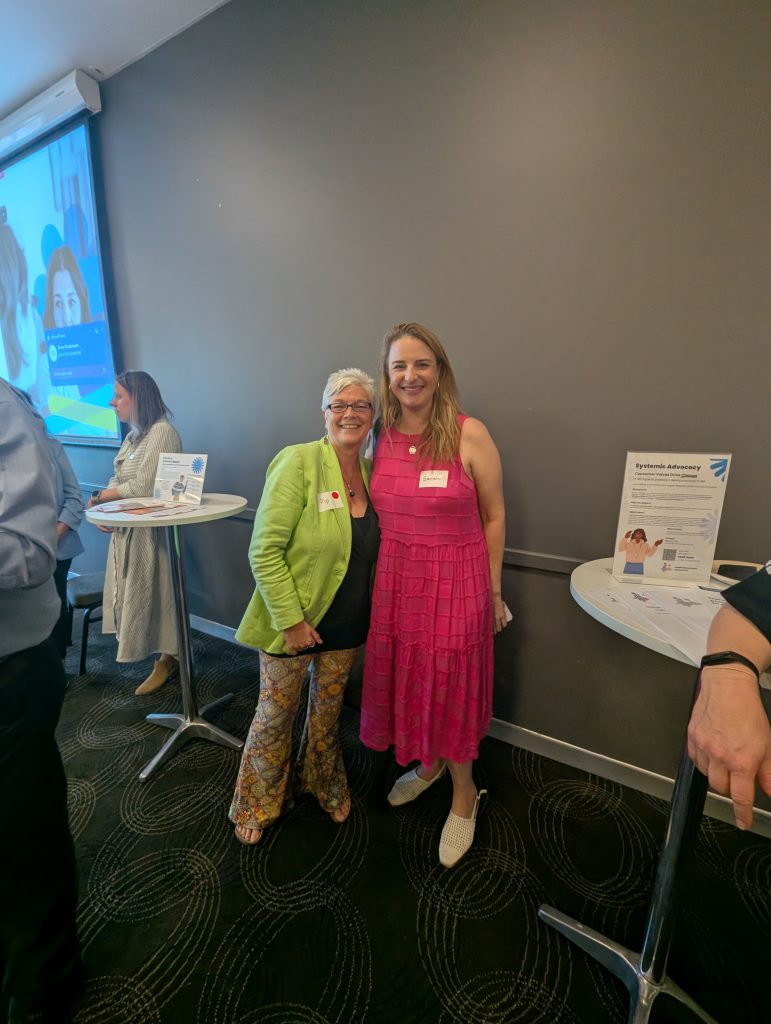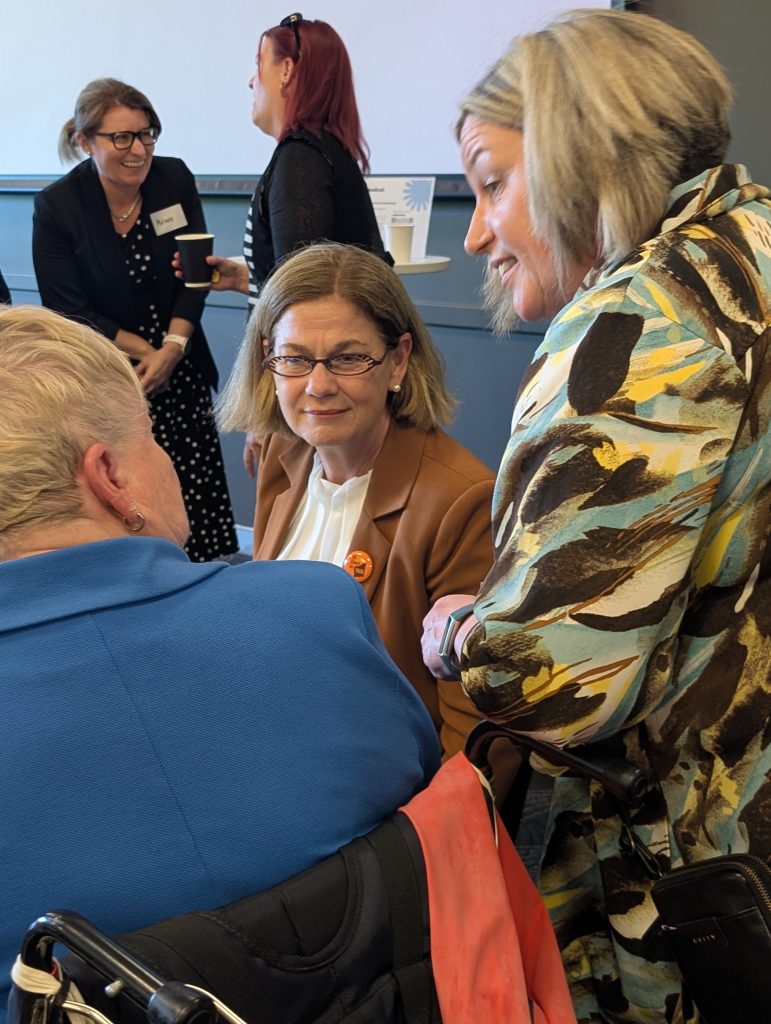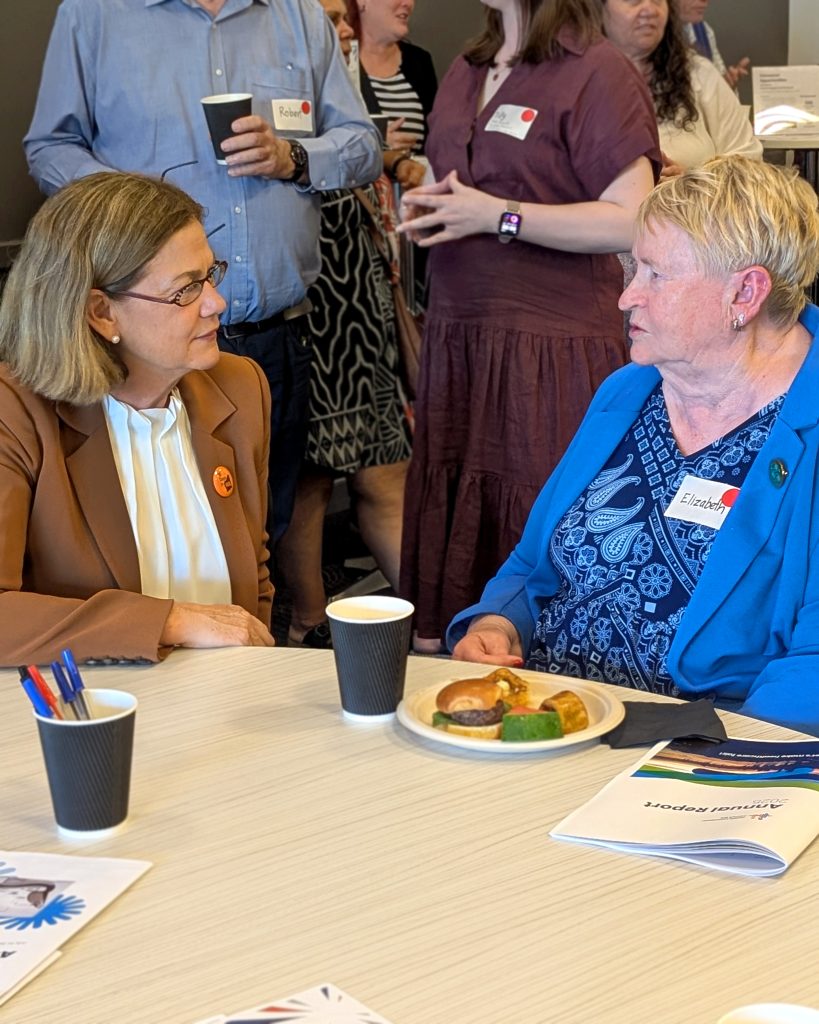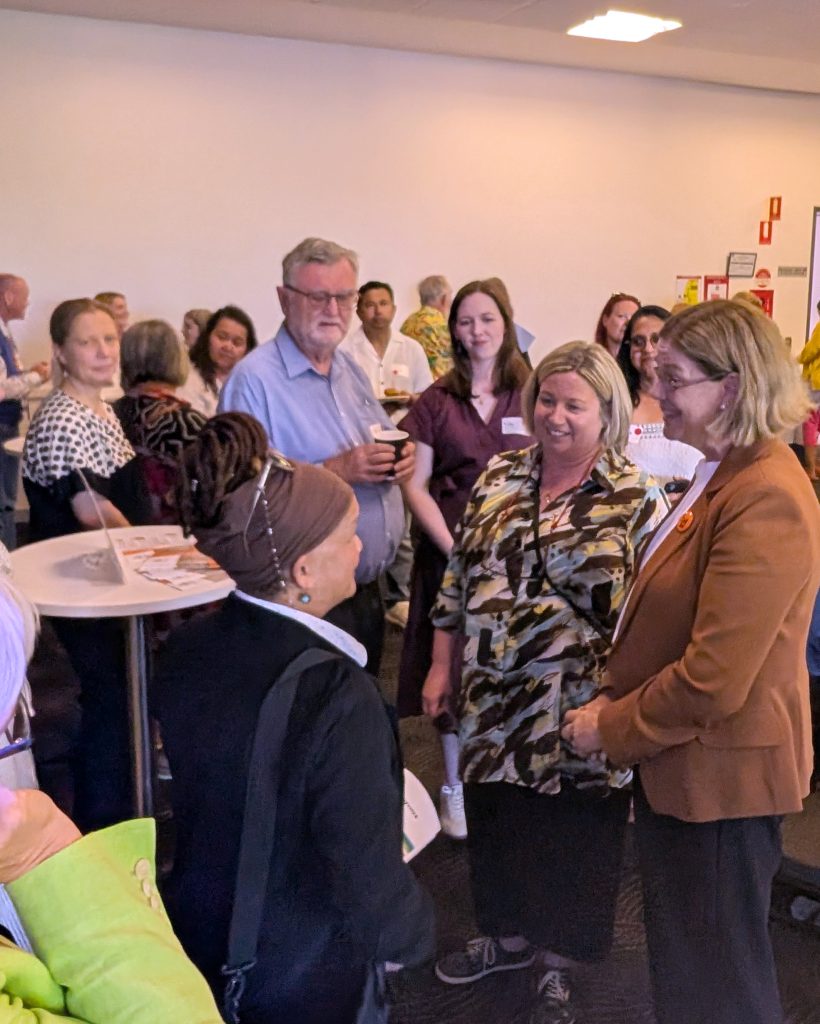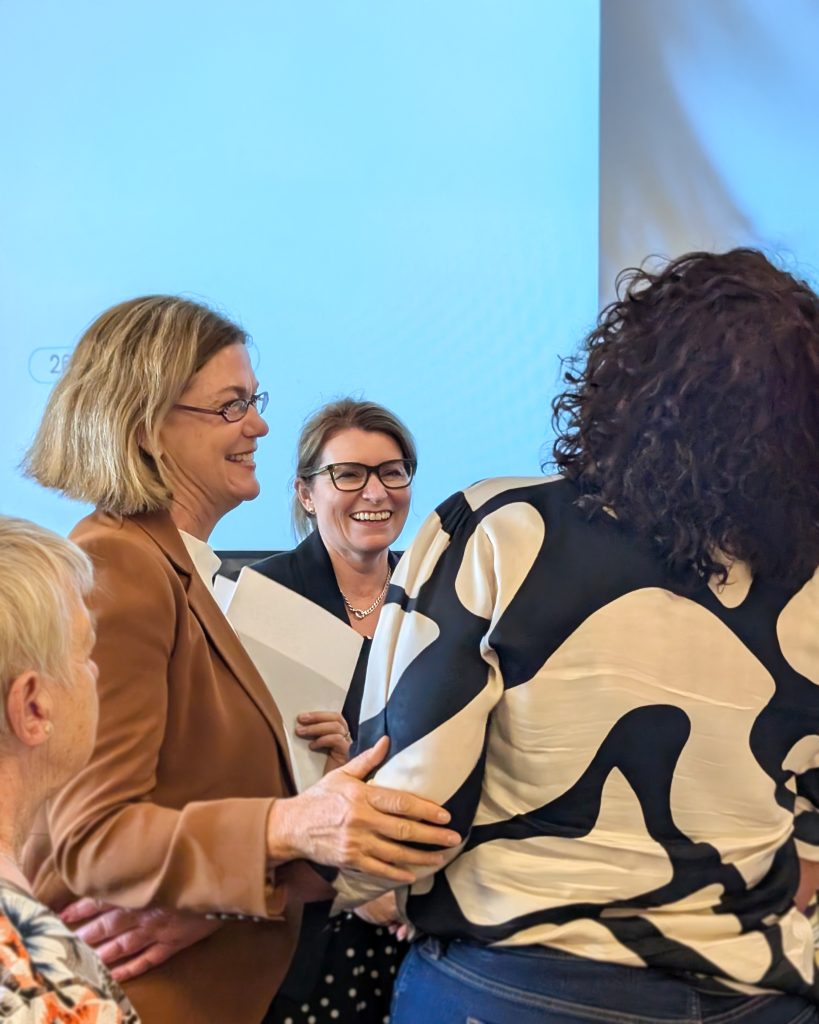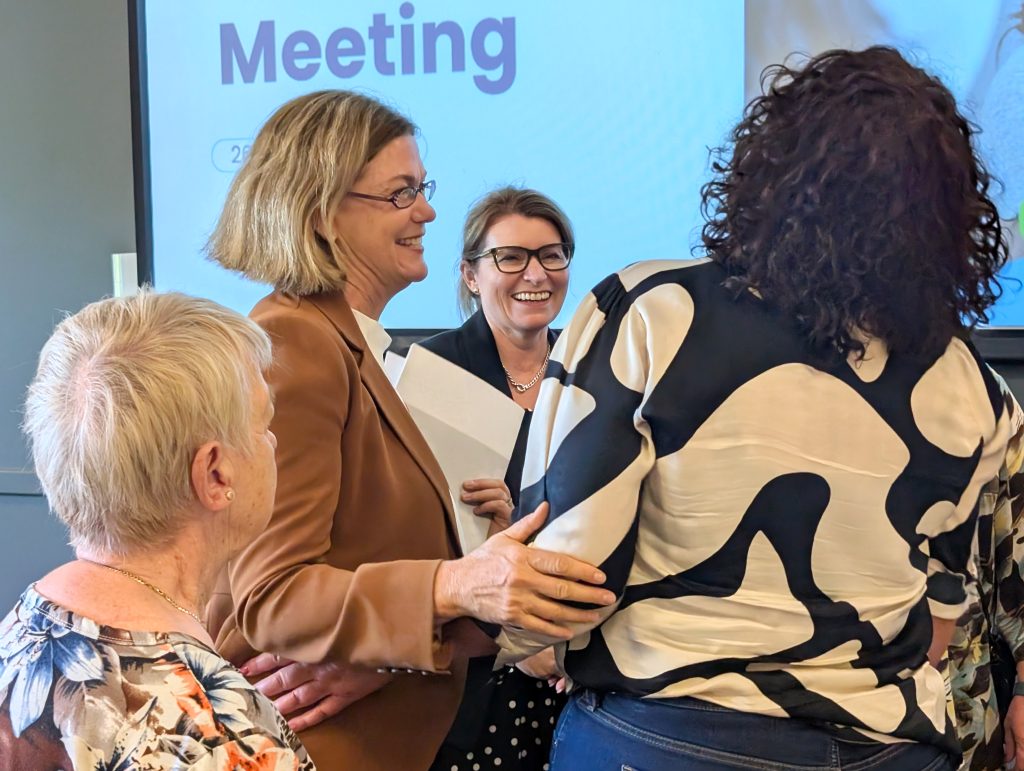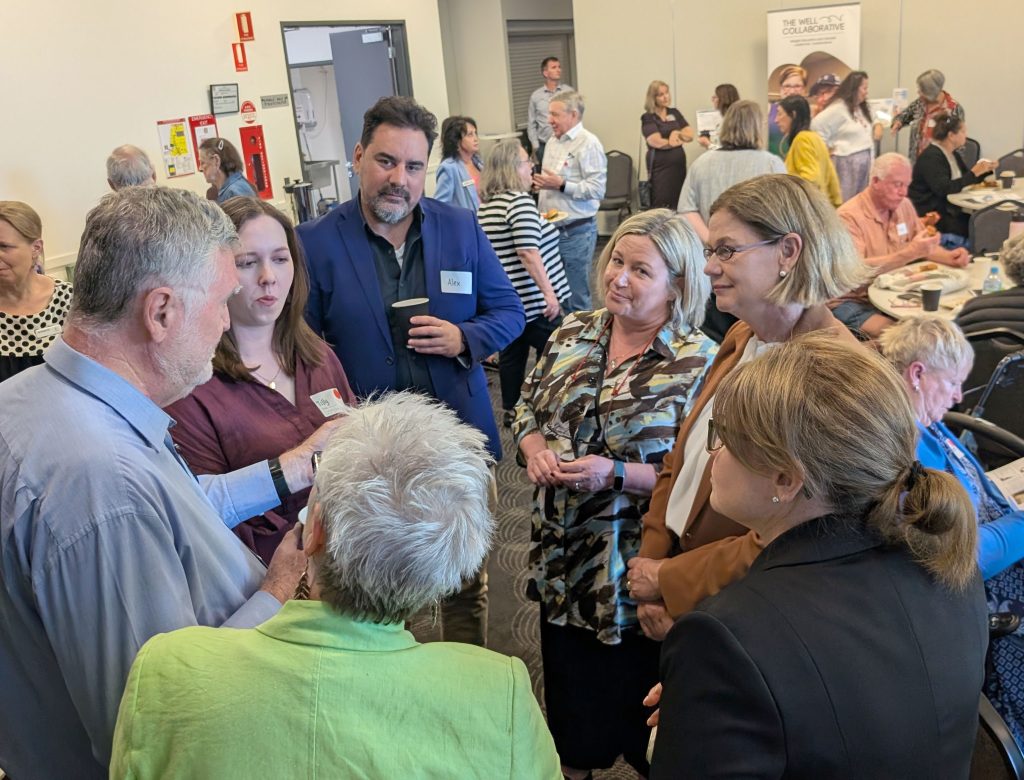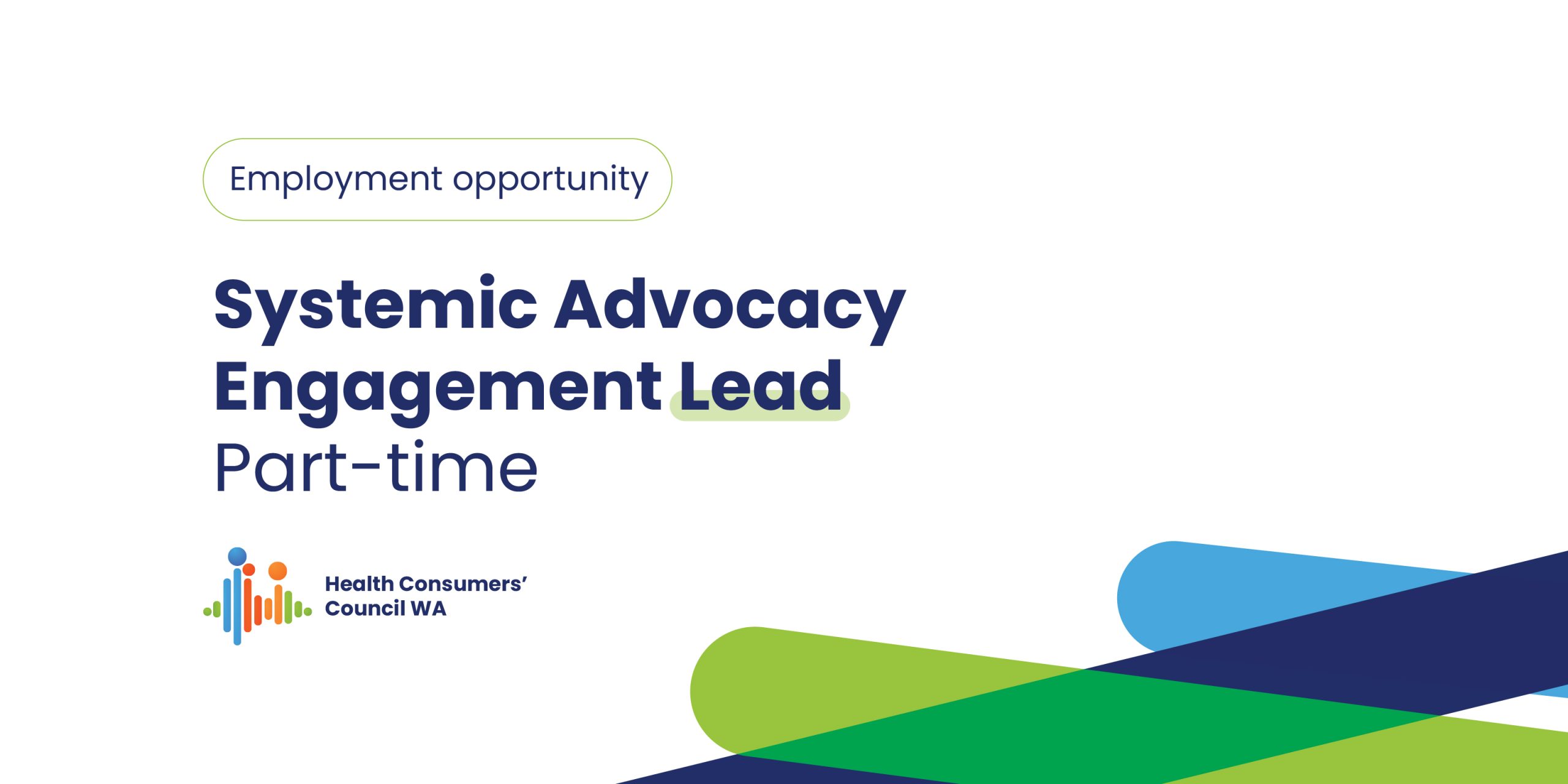
Part-time to Dec 2026 with possible extension
Can you help us build a social movement in health?
Are you passionate about improving equity and participation in health? Do you love all types of data – including first person stories, other qualitative information and quantitative data – and are skilled at weaving these together to craft compelling cases for change that prompt action? Then this might be your perfect role.
Systemic Advocacy Engagement Lead, part-time (4 days/week), fixed term to December 2026 with the possibility of extension
At Health Consumers’ Council, we believe in people power. Through our engagement and partnerships work, we are building a social movement in health – where the people who use health and healthcare services, and the people who work in them, can work together to identify priorities for improvement and make positive and lasting change.
Health Consumers’ Council WA
Health Consumers’ Council WA (HCCWA) is an independent community-based organisation which was established in 1994, representing the consumer’s voice in health policy, planning, research, and service delivery. We stand for equitable, person-centred, quality healthcare and improved health outcomes and experiences for everyone in Western Australia.
About the role
This role reports to the Executive Director. You will work with people across the HCCWA team who work on Aboriginal engagement, cultural diversity engagement, consumer representation and consultation, and individual advocacy.
This role is 0.8 FTE (4 days or 22.5 hours/week) based in our offices in Mount Lawley with the possibility of working from home for up to 50% of the time.
The role is initially offered to the end of December 2026, with the possibility of extension subject to funding.
The role offers
- The opportunity to ensure diverse consumer perspectives are represented at the highest levels of decision making in health
- The opportunity to work on a wide range of projects and with people from a wide range of backgrounds
- The opportunity to be part of a consumer-first organisation with a focus on improving health equity and championing health rights
- A friendly and supportive team that’s making a tangible difference in the community
- A competitive not-for-profit annual base salary – Level 6 Social Community Home care and Disability Award $55.72/hour + super
- Salary packaging up to $15,900 per annum
- Flexible working with the opportunity to work from home up to 50% of the time when settled in to the role
About you
- You’re looking for a role where you can apply your strong analysis and writing skills to advance social justice
- You’re interested in the health system and care about people’s experiences of it
- You’re comfortable advocating for diverse consumer perspectives to senior decision makers – and just as happy to roll your sleeves up and tidy up after an event along with your colleagues
What you’ll be doing
This position synthesises consumer insights and other literature and evidence to write submissions to public consultations and respond to opportunities to promote HCC’s systemic advocacy agenda as they arise. You will gather insights from health consumers, carers, community members and people with lived experience to inform and create submissions and engaging informative content that is distributed across a number of platforms including social media, email, web and online and hard copy publications and materials. You will also participate in a number of high level committees across WA Health representing diverse consumer views.
A typical week might see you:
- Hosting a focus group with consumers on a specific topic to inform HCC’s submission to a national consultation
- Preparing a submission to a Parliamentary enquiry
- Attending a number of Project Control Group meetings for high profile systemwide reform programs ensuring that diverse consumer perspectives are represented and understood
- Collecting and reviewing a wide range of information – including first person stories, government policies and publications, social media content, data relating to HCC’s individual advocacy and engagement activities – and using this to produce reports using everyday language, for consumers and community members
- Updating the HCC website to inform our members and others about our systemic advocacy activities
- Staying across current issues relating to health and social care, ensuring timely and evidence-based position papers and information is available as needed
- Meeting with counterparts in other health consumer advocacy groups to collaborate for maximum impact
See the job description for a full outline of responsibilities for the role.
What you’ll need to succeed in this role
Essential
- 3+ years’ experience in a similar role
- Well-developed analytical skills including the ability to work with and analyse quantitative and qualitative data and present these in a format that is accessible to non-expert audiences
- Excellent English literacy, writing, editing and proofing skills, able to succinctly and quickly synthesise and present a wide range of information on systemic advocacy issues for a range of audiences including formal policy submissions
- Ability to quickly synthesise information from a range of sources into accessible engaging content for a range of media including but not limited to social media, media releases, blogs, briefings and articles
- Knowledge of the Australian health and health system context including the levers for change
- A belief in the importance of the role of health consumers as partners in the planning, design, monitoring and evaluation of health services
- Able to confidently and effectively express a diverse range of consumer perspectives in a range of settings including in meetings with senior decision makers, public forums and in written form
- Able to use a range of software programs including (but not limited to) WordPress, Canva (or other graphic design program), Survey Monkey, Mailchimp, Zoom and Microsoft Office (or the ability to quickly become proficient in these)
- Experience in organising meetings, workshops or events to gather feedback and insights from consumers and other stakeholders
- Collaborative working style with an ability and willingness to muck in with other team activities as required
- The ability to work autonomously and within deadlines, including managing a number of projects at the same time
- Proactive, reliable and flexible attitude and comfortable working in a fast-paced adaptive environment
Desirable
- Strong networks in political circles
- Experience in campaigning on social issues
But if you have other skills and experience that you think makes you a great fit for this role, please tell about those too!
Diversity and inclusion
At Health Consumers’ Council we know that strength comes from diverse perspectives being at the table. We particularly encourage applications from Aboriginal and Torres Strait Islander people, people from culturally diverse backgrounds and identities, and people with disability.
To apply for the position
Send a cover letter of no more than two pages addressing the selection criteria in the job description, along with a current resume outlining your work experience, skills and any relevant education or training to jobs@hconc.org.au. Applications that do not address the criteria may not be considered.
- The closing date for applications is 8am on Thursday 29 January 2026
But, we will be assessing applications as they come in and reserve the right to appoint before this deadline, so if this is your dream job, submit your application promptly
If you require any adjustments to submit your application or wish to have a confidential discussion about the role, please contact Clare Mullen, Executive Director on (08) 9221 3422 or email ceo@hconc.org.au
